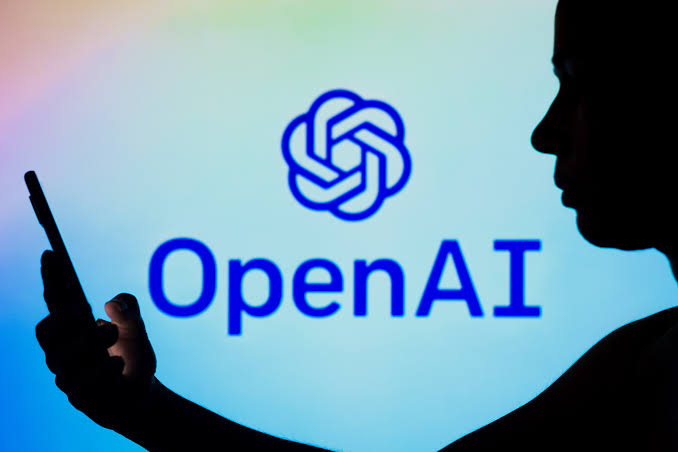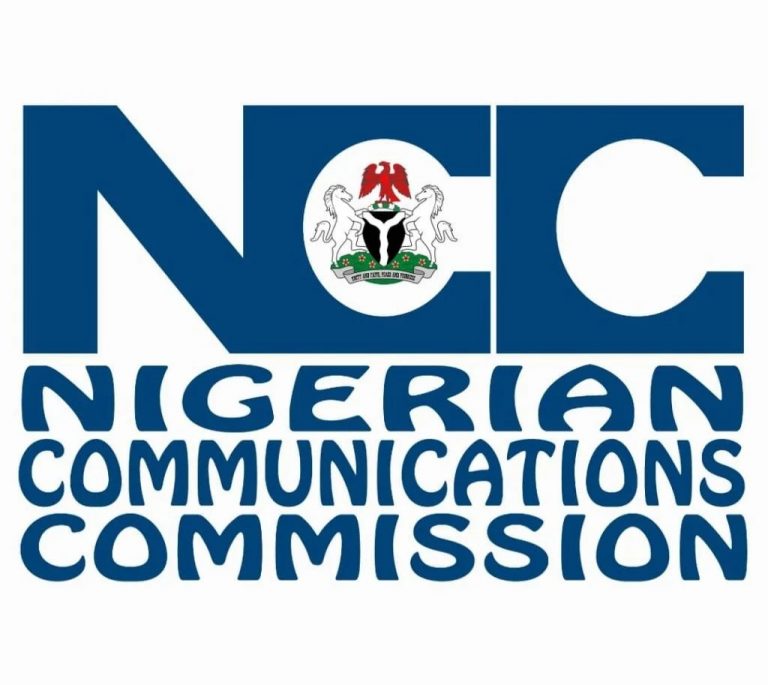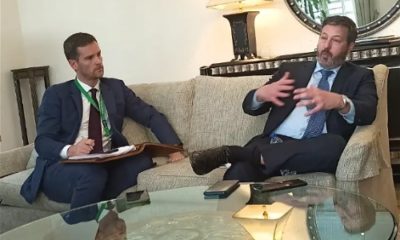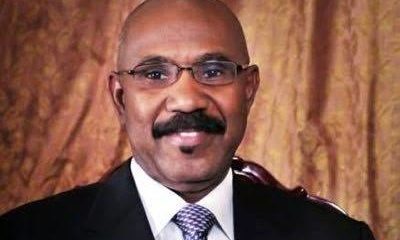Communication
OpenAI CEO Addresses AI Job Market Fears, Racism Concerns

On Friday, the CEO of OpenAI, the company responsible for the widely used ChatGPT bot, addressed concerns regarding the impact of artificial intelligence (AI) on the job market.
He reassured that OpenAI’s technology would not lead to the destruction of jobs, aiming to alleviate fears surrounding the advancement of AI.
During his global tour to engage with national leaders and influential individuals, Sam Altman, the CEO of OpenAI, made the statement in Paris emphasizing that artificial intelligence (AI) would not result in the complete elimination of entire job sectors through automation, contrary to some concerns raised.
Altman expressed his disagreement with the notion that AI would reach a stage where humans would no longer have any meaningful work or purpose, highlighting that such an idea has never resonated with him personally.
He said “This idea that AI is going to progress to a point where humans don’t have any work to do or don’t have any purpose has never resonated with me,”
When questioned about the media industry, which has witnessed the utilization of AI by various outlets to generate news stories, Altman remarked that ChatGPT should be seen as a tool that provides journalists with the support of 100 assistants, aiding them in research and idea generation.
Altman highlighted the emergence of ChatGPT, which gained significant attention in recent times, showcasing its capacity to generate essays, poems, and conversations based on minimal prompts.
Microsoft later laid out billions of dollars to support OpenAI and now uses the firm’s technology in several of its products — sparking a race with Google, which has made a slew of similar announcements.
Altman, a 38-year-old emerging star of Silicon Valley, has received rapturous welcomes from leaders everywhere from Lagos to London.
Though earlier this week, he seemed to annoy the European Union by hinting that his firm could leave the bloc if they regulate too severely.
He insisted to a group of journalists on the sidelines of the Paris event that the headlines were not fair and he had no intention of leaving the bloc — rather, OpenAI was likely to open an office in Europe in the future.
Altman’s remarks reflect how the remarkable achievements of ChatGPT, including its usage by politicians for speechwriting and its ability to pass challenging exams, have propelled him into the international limelight.
“Years from now, reflecting on this will feel very special… but it is also quite exhausting and I hope life calms down,” he said.
Established in 2015, OpenAI was initially backed by investors such as Altman and Elon Musk, the billionaire owner of Twitter. However, Musk departed from the company in 2018 and has been openly critical of OpenAI in recent months.
Despite having his own aspirations in the field of artificial intelligence, Musk claimed credit for conceptualizing the name “OpenAI” and investing $100 million in the company.
He expressed a sense of betrayal when OpenAI transitioned from a non-profit organization to a profit-oriented entity in 2018 and has since asserted that Microsoft effectively governs the company.
“I disagree with almost all of that, but I will try to avoid a food fight here,” said Altman. “There’s got to be more important things than whatever he’s going on about.”
Instead, he wanted to focus on the mission of OpenAI, which he said was to “maximise the benefits” to society of AI and particularly Artificial General Intelligence (AGI) — the much-vaunted future where machines will master all sorts of tasks, not just one.
He conceded that definitions of AGI were “fuzzy” and there was no agreement, but said his definition was when machines could make major scientific breakthroughs.
“For me, if you can go figure out the fundamental theory of physics and answer it all, I’ll call you AGI,” he said
In addition to concerns regarding copyright issues, critics have raised the argument that users should be aware of the individuals responsible for providing answers to their questions. They also express apprehension about the possibility of the responses utilizing material from offensive or racist webpages.
Altman countered these criticisms by asserting that the primary concern for critics revolved around whether the AI models themselves exhibited racist tendencies.
“How it does on a racial bias test is what matters there,” he said, deflecting the idea that he should publish the sources.
He said the latest model, GPT-4, was “surprisingly non-biased”. He added.
Communication
Nigeria’s Telecom Market Eyes $11.43bn Value By 2029

In a significant market projection, Mordor Intelligence predicts that the Nigerian telecom sector is set to surge to a value of $11.43 billion by 2029.
The report anticipates a steady growth trajectory with a cumulative average growth rate (CAGR) of 4.70% between 2024 and 2029, based on the current market value of $9.09 billion.
The transformation of Nigeria’s telecom landscape, fueled by government initiatives to boost internet infrastructure and broadband connectivity, coupled with rising data consumption, 5G deployments, and innovative strategies from major telecom players, is expected to drive this substantial market expansion.
The report underscores additional factors propelling the growth of Nigeria’s telecom sector, emphasizing the surge in smartphone adoption.
the report said “Increased smartphone adoption in Nigeria has fueled the development of a dynamic digital services sector. Currently, millions of Nigerians use mobile apps, including social networking sites, e-commerce, and financial services.
“These apps could leverage smartphones’ capabilities to offer speed, convenience, and efficiency, encouraging more people to invest in smartphones.
“In addition to these expansions and collaborations, the growing adoption of digital technologies and government support in aiding the same alongside the 5G technology implementation across the country is analyzed to boost the demand for telecom towers significantly.”
“In addition to these expansions and collaborations, the growing adoption of digital technologies and government support in aiding the same alongside the 5G technology implementation across the country is analyzed to boost the demand for telecom towers significantly.”
Mordor Intelligence highlights that the flourishing e-commerce and digital service platforms in Nigeria are significant drivers behind the escalating demand for dependable telecom services in the country.
Communication
MTN Set To Partially Disconnect Glo Network

The Nigerian Communications Commission (NCC) has granted MTN’s request to partially disconnect Globacom (Glo) from its network owing to unsettled interconnect charges.
Reuben Muoka, the NCC’s Director of Public Affairs, disclosed this in a document named ‘Pre-Disconnection Notice’ on Monday.
The move follows Glo’s persistent failure to clear its outstanding debts despite multiple attempts to resolve the issue.
Under this partial disconnection, Globacom subscribers will solely receive calls from MTN users, while retaining access to other network services like outgoing calls to other networks and data services.
However, they won’t be able to initiate calls to MTN users during this period.
The statement read, “All subscribers are, therefore requested to take notice that the Commission has approved the Partial Disconnection of Globacom to MTN in accordance with Section 100 of the Nigerian Communications Act, 2003 and Paragraph 9 of the Guidelines on Procedure for Granting Approval to Disconnect Telecommunications Operators, 2012.
“At the expiration of 10 days from January 8, 2024, subscribers of Globacom will no longer be able to make calls to MTN but will be able to receive calls.
“The Partial Disconnection, however, will allow in-bound calls to the Globacom network,” it added
Communication
Despite Hardship Nigerians Spent N3.33tn On Calls, Data In 2022

Nigerian telecommunication users, along with others within the country, expended a total of N3.33 trillion on various telecom services such as calls, data, SMS, and more throughout 2022, according to the Nigerian Communications Commission (NCC).
This information comes from the recently published ‘2022 Subscriber/Network Data Annual Report’ by the NCC, which also revealed that telecom companies generated N3.33 trillion in overall revenue for that year.
The report further highlights a noteworthy growth of active voice subscriptions, rising from 195,463,898 subscriptions in 2021 to 222,571,568 by December 2022, marking a 13.86% year-on-year increase.
Commenting on the increase, it said, “The increase in the Operators’ subscriber base was attributed to a number of reasons which includes subscriber loyalty, promos, seasonal effects, aggressive consumer acquisition drive, and competitive product offerings across all the networks.”
It noted that the growth in active subscriptions impacted positively on other derived telecom indicators such as teledensity, Internet penetration as well as broadband penetration.
Data usage also continued its surge in 2022. It increased by 46.77 per cent to 518,381.78TB as of the end of the year.
The NCC stated, “There was an increase in the volume of data consumed at the year-end December 2022 when compared with the year-end December 2021.
“The total volume of data consumed by subscribers increased to 518,381.78TB as of December 2022 from 353,118.89TB as of December 2021. This represents an increase of 46.77 per cent in data consumption within the period.”



















